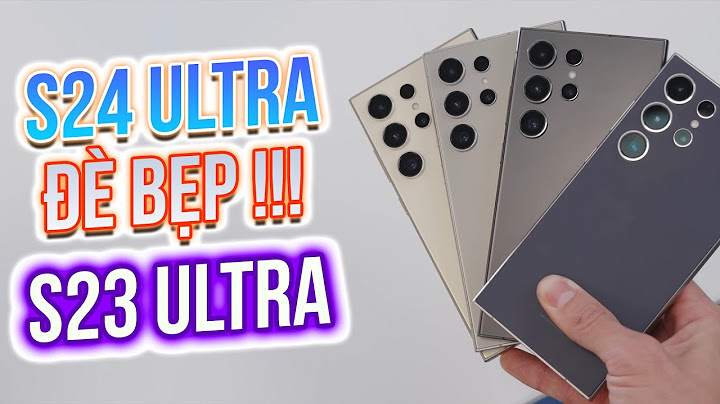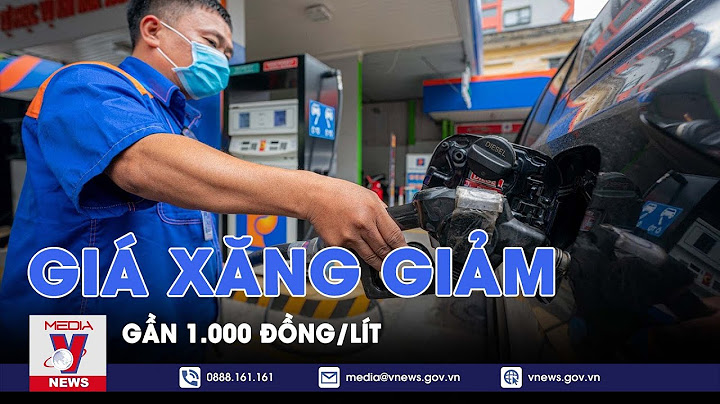On 3 May 2018, Choice® updated its review of personal alarms. Six months ago, we made Choice® aware that Australia’s newest personal alarm (the iHelp) was one to consider in a future review. Since then, the iHelp has been nominated Best Product of 2018 as awarded by Assistive Technology Suppliers Australasia. Show
Nevertheless Choice® chose to ignore the iHelp Personal Mobile alarm. It’s surprising to read in their opening paragraph: “We lab test and review the latest models” when, most of the ten products tested were the same ones they tested in their original February 2017 review and all of them have been around since before that time. With the variety of mobile-style personal alarms in the Australian market, it’s extraordinary that six of the ten Choice® tested were all the identical product coming out of the same factory, but from different sellers. And yet the same product scored between 50% to 91%. The real intrigue starts with their “lab testing. . . of criteria chosen by [their] experts.” When comparing their tests of the same model (what we call the FD), there are curious anomalies. A couple examples include: Water resistance – Three sellers show a rating of IP67, two are listed as IPX5 (IP65), and one shows IP66. The manufacturer’s website shows the actual waterproof rating to be IP65. Is it coincidence that the Choice rating is identical with that listed on the sellers’ websites? Telco we tested on – While Telstra was the network tested, Optus and Vodafone are also shown. Three sellers show “No” for Vodafone, but the other three all show “Yes”. One seller shows “No” for Optus, but the other five all show “Yes”. However the FD comes in either 850/1900 MHz or 900/2100 MHz. Telstra uses the 850 frequency band and Optus uses the 900 MHz band. Since Choice® tested only on the Telstra network, how could they know to put yes or no for the other networks? Particularly when some sellers only offer units for the Telstra network. One “lab tested criteria” Choice® recently deleted had shown that one seller’s FD worked on the 4G network while the other five used only the 3G network. Since we were the ones who first introduced the FD into the Australian market four years ago, we know it is a 3G unit. We can only guess that Choice® removed that criteria point after we brought to their attention the lengthy list of misinformation in their article. It’s readily apparent that Choice® did not lab test all the points they claimed but rather took information directly from the seller or their website. Even specification errors as basic as the dimensions of the FD range from 13mm in thickness to 17mm. We are astounded that a publication with the stature of Choice® should add to the confusion of Australian consumers by contributing to the damaging spread of misinformation that already exists on many personal alarm seller’s websites. With an ageing population in Australia, the number of elderly people requiring assistance and care is on the rise. One solution to help maintain their independence and safety is the use of personal alarms. These devices are designed to alert caregivers, family members, or emergency services when a senior needs help. In this article, we will discuss the importance of personal alarms, the features to consider when choosing the best personal alarm for elderly, and provide a comparison between two top personal alarms for seniors in Australia. Personal alarms for seniors are an essential tool for those who wish to live independently while ensuring their safety. These devices can be worn around the neck, on the wrist, or even clipped to clothing. When activated, they send a signal to a monitoring centre or designated contact, notifying them that assistance is needed. With many different models and features available on the market, it can be challenging to determine which is the best personal alarm for elderly individuals. This article aims to provide you with the necessary information to make an informed decision when selecting a personal alarm for your elderly loved one. We will be exploring the various features and functions of personal alarms, reviewing the top personal alarms available in Australia, and offering guidance on how to choose the best device for your specific needs. Importance of Personal Alarms for SeniorsThe safety and well-being of our elderly loved ones are of utmost importance. As they age, they may experience mobility issues, cognitive decline, or other health problems that can make living independently more challenging. Personal alarms offer a way for seniors to maintain their independence while ensuring that help is just a button press away. Having a personal alarm can be a lifesaver in emergency situations, such as when a senior experiences a fall or requires urgent medical assistance. In these instances, every second counts, and having a quick and reliable way to call for help can make all the difference. Furthermore, personal alarms provide peace of mind for both seniors and their families, knowing that assistance is always available. In addition to emergency situations, personal alarms can also be useful for seniors who may become disoriented or lost. Some devices come equipped with GPS tracking, allowing caregivers or family members to locate their loved one quickly. This feature is particularly beneficial for those with dementia or Alzheimer’s disease, who may wander away from home. Features to Consider When Choosing the Best Personal Alarm for ElderlyWhen searching for the best personal alarm for seniors, there are several features to consider. These include:
Top Personal Alarms for Seniors in Australiaa. Safe-Life Personal Medical Alarm 4GThe Safe-Life Personal Medical Alarm 4G is a top choice for seniors seeking a reliable and feature-rich personal alarm. This device operates on the 4G network, ensuring broad coverage and fast response times. With its GPS positioning capabilities, caregivers and family members can easily locate their loved one in case of an emergency or if they become lost. In addition to its GPS features, the Safe-Life Personal Medical Alarm 4G also offers fall detection, which can automatically send an alert if the wearer experiences a fall. Two-way communication allows seniors to speak directly with a monitoring centre or designated contact, providing further reassurance in emergencies. Read the CHOICE magazine review here  b. Safe-Life Watch Alarm 4GThe Safe-Life Watch Alarm 4G is another excellent option for seniors in Australia. This personal alarm for elderly Australia offers similar features to the Personal Medical Alarm 4G, such as GPS positioning, fall detection, and two-way communication. However, the Watch Alarm 4G is designed as a wristwatch, making it a more discreet and stylish option for seniors who may be hesitant to wear a traditional pendant-style alarm. Both the Safe-Life Personal Medical Alarm 4G and the Safe-Life Watch Alarm 4G offer seniors an effective way to call for help when needed, with a range of useful features to ensure their safety and well-being.  Comparing the Best Personal Alarm for elderly Australia: Safe-Life Personal Medical Alarm 4G vs. Safe-Life Watch Alarm 4GWhen comparing the Safe-Life Personal Medical Alarm 4G and the Safe-Life Watch Alarm 4G, there are some key differences to consider. While both devices operate on the 4G network and offer GPS positioning, fall detection, and two-way communication, the choice between the two may come down to personal preference and style. The Personal Medical Alarm 4G is a pendant-style device, which can be worn around the neck or clipped to clothing. This design may be more comfortable for some seniors, particularly if they have mobility limitations that make wearing a wristwatch difficult. The Watch Alarm 4G, on the other hand, offers a more discreet option, with all the same features as the Personal Medical Alarm 4G, but in a stylish wristwatch design. Ultimately, the choice between the Safe-Life Personal Medical Alarm 4G and the Safe-Life Watch Alarm 4G will depend on the individual needs and preferences of the senior and their caregivers. How to Choose the Best Personal Alarm for Your Loved OneIn order to choose the best personal alarm for your elderly loved one, consider the following factors:
By considering these factors, you can make an informed decision and select the best personal alarm for your loved one’s needs and preferences. Tips for Using Personal Alarms EffectivelyOnce you have chosen the best personal alarm for your elderly loved one, it’s essential to ensure that they use it effectively. Here are some tips to help them get the most out of their device:
By following these tips, you can help ensure that your elderly loved one uses their personal alarm effectively, providing them with the safety and peace of mind they deserve. Assistance Programs and Funding for Personal Alarms in AustraliaIn Australia, there are several assistance programs and funding options available to help seniors access personal alarms. These include the Commonwealth Home Support Programme (CHSP), (HCP), as well as state-based programs and private health insurance rebates. It’s essential to research these options and determine your loved one’s eligibility, as they may be able to receive financial assistance in obtaining a personal alarm. Speak with your healthcare provider or contact the relevant programs directly to learn more about the available funding and support. Frequently Asked Questions About Personal Alarms for ElderlyQ: What is the best personal alarm for elderly Australian individuals? A: The best personal alarm for seniors will depend on their specific needs and preferences. Some top options in Australia include the Safe-Life Personal Medical Alarm 4G and the Safe-Life Watch Alarm 4G. Q: Are personal alarms waterproof? A: Some personal alarm for elderly Australia are waterproof or water-resistant, allowing seniors to wear them while bathing or engaging in water-based activities. Be sure to check the specifications of the device you are considering to ensure it meets your loved one’s needs. Q: How much do personal alarm for elderly Australia cost? A: The cost of a duress alarm will vary depending on the features and monitoring options. Some devices require an upfront purchase price, while others may have ongoing subscription fees for professional monitoring services. Be sure to research various options and consider your budget when selecting a personal alarm. Conclusion: Making the Right Choice for Your FamilyChoosing the best personal alarm for elderly individuals in Australia can be a daunting task, but by considering their needs and preferences, evaluating various devices on the market, and seeking the appropriate funding and assistance, you can make an informed decision to ensure their safety and well-being. By investing in a quality personal alarm, such as the Safe-Life Personal Medical Alarm 4G or the Safe-Life Watch Alarm 4G, you can provide your elderly loved one with the independence they desire while ensuring that help is always just a button press away. Stay safe and secure with the Safe-Life 4G Personal Medical Alarm. With GPS positioning and the ability to call for help with just the press of a button, you can have peace of mind anywhere, anytime on the 4G network. Ideal for a variety of applications, including aged care, dementia care, personal security, and more. Contact us at [email protected] or call 03 9588 0392 to learn more and see if you’re eligible for a discount. Don’t wait – invest in your safety and well-being today! Remember, personal alarms are not just a device, but a tool that can provide peace of mind to both seniors and their loved ones, knowing that help is always available. By choosing the best personal alarm for elderly individuals, you can ensure that your loved one can live independently while maintaining their safety and well-being. What is the best personal alarm for the elderly in Australia?A: The best personal alarm for seniors will depend on their specific needs and preferences. Some top options in Australia include the Safe-Life Personal Medical Alarm 4G and the Safe-Life Watch Alarm 4G. What is the best monitored alarm for the elderly?SureSafe Alarms are leading providers of personal alarms for the elderly. They offer a broad range of alarms that can be used both in the home as well as when 'out and about'. They help over 170,000 people in the UK through two UK-based monitoring centres, 24 hours a day, 7 days a week. How much does a personal alarm cost for the elderly?Tunstall's personal alarms retail for between $250-799, with a variety of payment plan options. The Tunstall Gem4, our most popular alarm, offers two monitoring options: MONITORED: This option has a one-off device purchase cost of $399 (plus postage) and then a 24/7 monitoring service that costs only $27.45/month. What is the best medical alert system with fall detection Australia?The SureSafeGO's medical alert and automatic fall detection smartwatch is the newest and best personal safety and medical alarm available in Australia, offering the broadest range of features: One-touch Personal Alarms – get help at the touch of a button. GPS Positioning – Google Maps location sent to nominated ... |




















